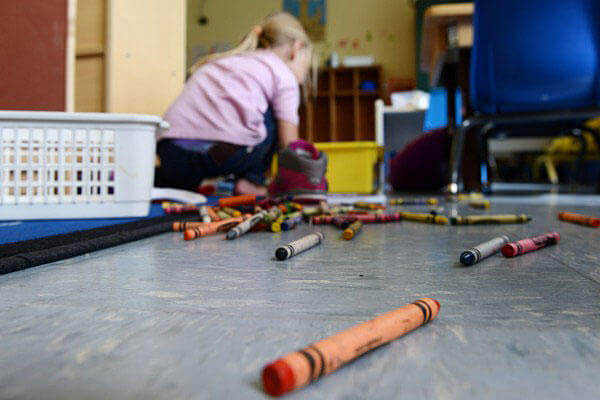The U.S. military's criminal investigative agency has reopened child sexual abuse cases after the Defense Department's Inspector General found "significant deficiencies" in a review of the military's investigation of these crimes.
The Inspector General found that nearly six out of 10 cases that were reviewed had at least "minor deficiencies" and six percent had "significant deficiencies." U.S. military prosecutors have reopened eight of the cases where "significant deficiencies" were discovered.
The Inspector General defined significant deficiencies as "key evidence not being collected, crime scenes not examined, and witness or subject interviews not conducted or not thorough," according to the IG report released Tuesday.
The report looked at 163 Military Criminal Investigative Organization (MCIO) investigations of allegations of sexual assault against children in 2012 to determine whether Defense Department standards were followed. Of those 163 cases, 201 victims were involved, with 99 being under the age of 10.
Of the 96 cases that the IG identified as having "minor deficiencies," investigators determined these 96 had "no impact on the outcome of the investigation," the IG's report stated. Minor deficiencies included "delays in completing certain logical investigative steps," not collecting appropriate medical records, and a failure to routinely update the victim on the status of the investigation.
The IG's report offers data on a problem of child abuse and child sexual assault in the military. Over the past decade, more than 1,400 children of Army families have been exposed to sexual abuse, according to an Army Times investigation published last year. About 30,000 children have "suffered abuse or neglect in Army homes," the newspaper reported.
IG investigators found the majority of the child sexual assaults in 2012 occurred on military installations and nine out of 10 cases occurred where the victim knew the alleged assailant. Of the 138 subjects that were investigated in the 163 cases, 94 were service members.
Almost half of the investigations into the 163 cases resulted in no punishment as a result of the investigation. Out of the 138 subjects, 38 were convicted by courts-martial or civilian courts, the IG found.
Six out of the 10 cases where "significant deficiencies" were discovered were completed by the Army's Criminal Investigation Division. The Army chose to open only four out of the six.
"CID declined to pursue additional investigative activity for the two remaining cases because they believed it would not alter the outcome of the case or too much time had elapsed, causing the recommended investigative activity to be impracticable," the IG wrote.
The commanders of the Army's Criminal Investigation Division and the director of the Naval Criminal Investigative Service generally agreed with the findings of the IG's report and stressed that they would continue to press for thorough and complete investigations of all allegations of child sexual abuse.
Even though the review required the military to reopen eight cases, Randolph Stone, the Defense Department's deputy inspector general for policy and oversight, commended the Military Criminal Investigative Organization.
"We commend the MCIOs for their high compliance rate and determined approach to solving such heinous crimes against children," he wrote in the report.
-- Richard Sisk contributed to this report.
-- Michael Hoffman can be reached at Mike.Hoffman@monster.com.




























